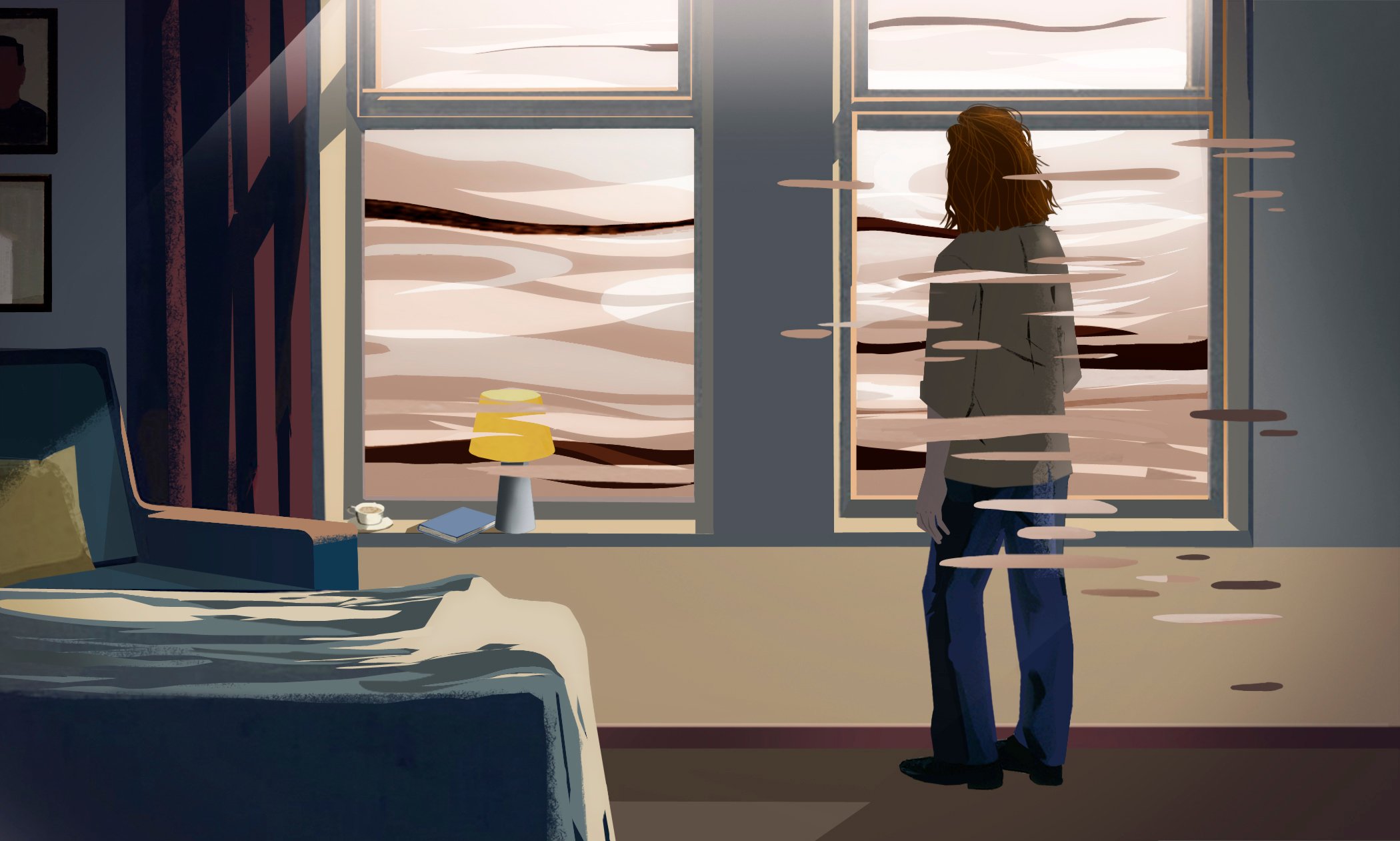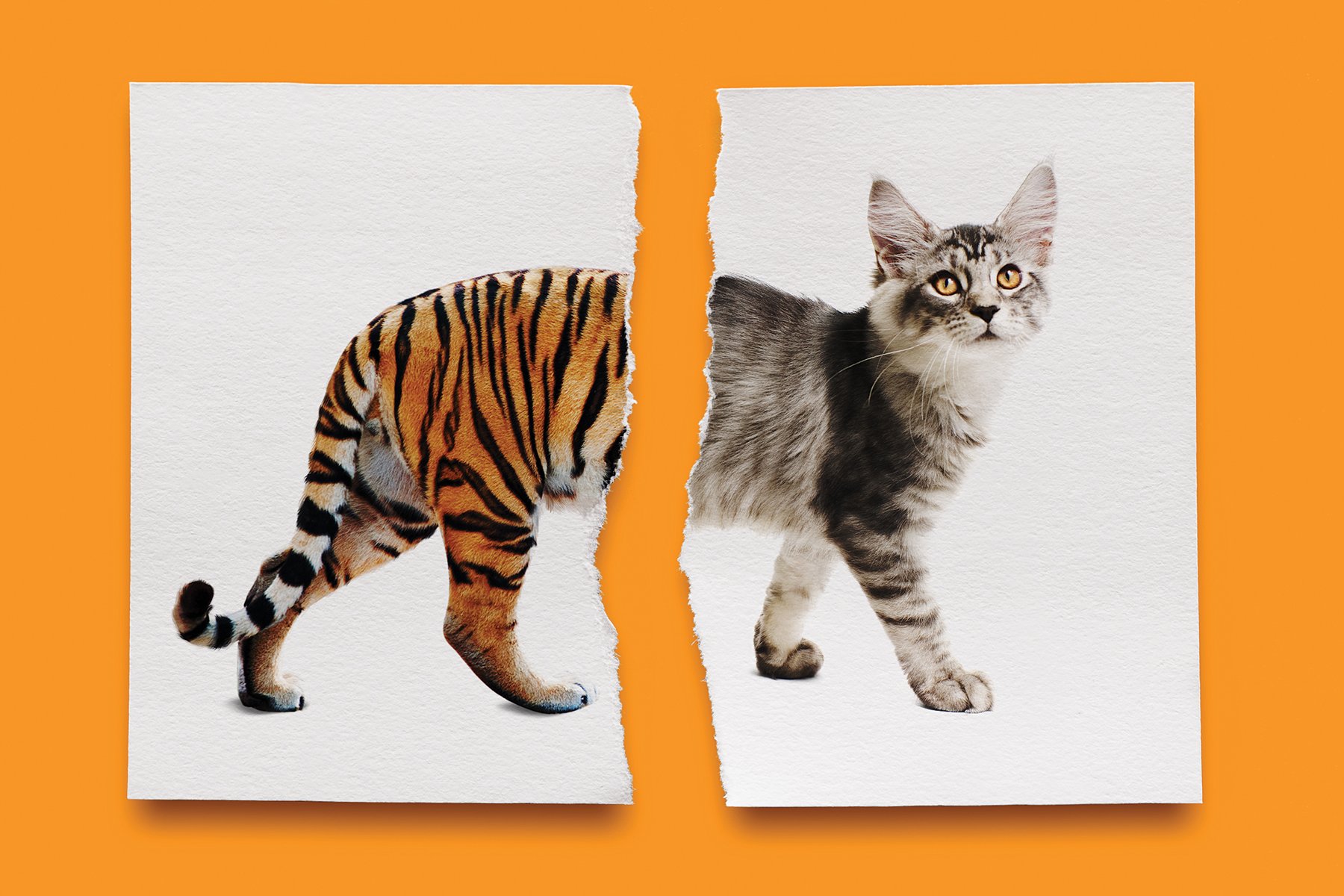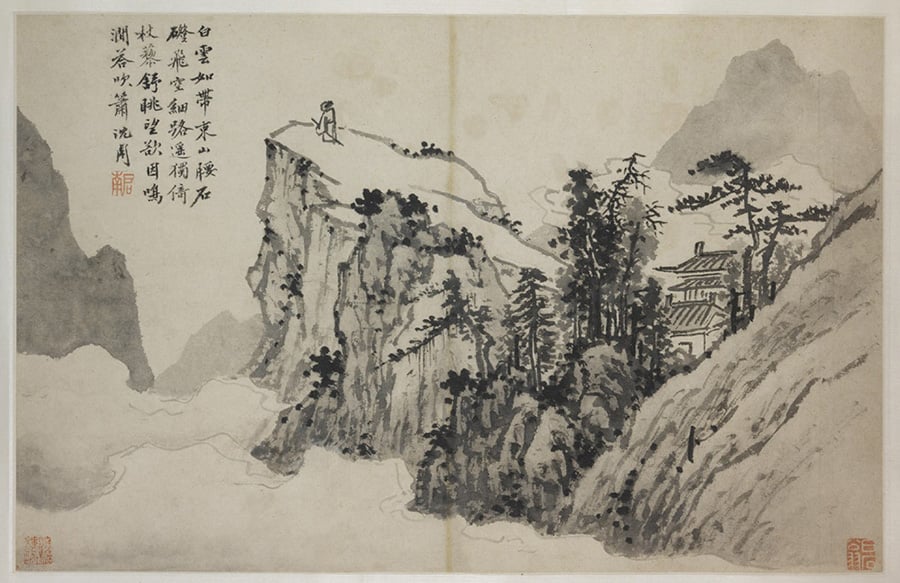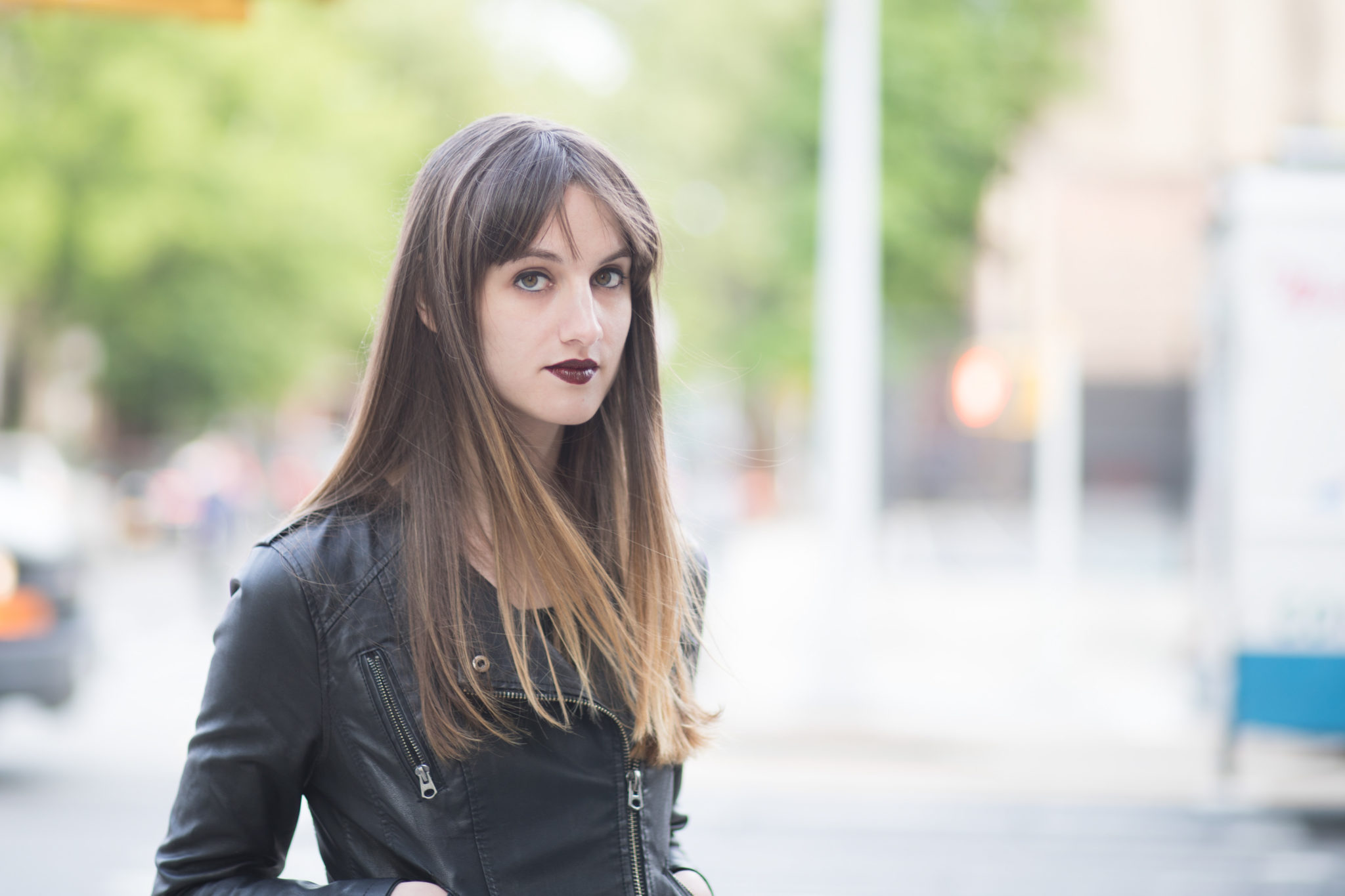
Short Story Contest Finalist: ‘Stakes’
In Deirdre Coyle's "Stakes," a lost twentysomething works at a dust-blown Renaissance fair in the Arizona desert.
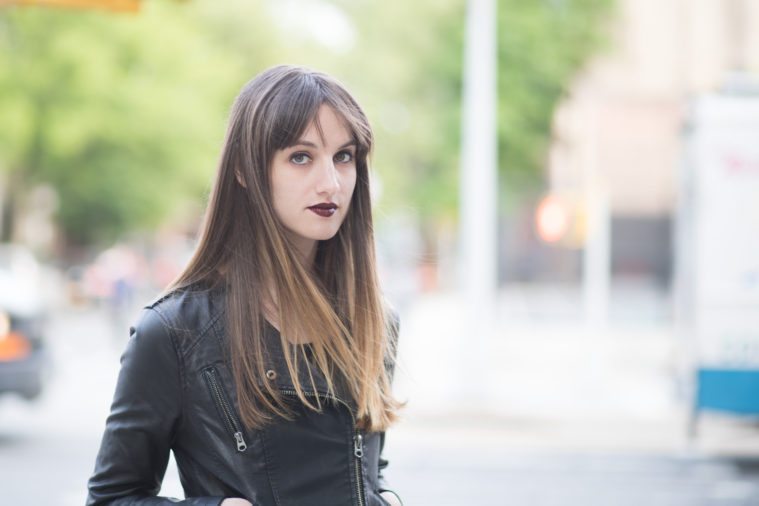
Deb Olin Unferth, guest judge for the 2017 Texas Observer Short Story Contest, says that her favorite short stories “ask big questions, sometimes in the smallest spaces,” but try to avoid providing easy answers. “Like life,” she says, “in a good story there are no simple solutions.”
All five of this year’s finalists asked the big questions in a small space — after all, our word count maximum is 2,500. But following Deb’s dictum, the solutions are far from simple… if they exist at all.
Throughout September we’ve been publishing the contest runners-up, leading up to the winning story, which will appear in our October print edition and then online.
So far, you’ve read Kim Henderson’s “Malena,” set in a dying New Mexico town, and Randall G. Arnold’s “A Thunder Note in an Angry Sky,” in which a lineman searches for stolen utility poles and, well, meaning.
Today we’re offering “Stakes,” a story from Deirdre Coyle about a lost twentysomething’s experiences working at a dust-blown Renaissance fair in the Arizona desert. Even if you’ve never been there, you’ve been there.
Naturally, the job was terrible. Every morning, I slathered my face in sunscreen. I caked SPF-30 makeup over the sunscreen and donned my bell-sleeved Renaissance dress, braided my hair and folded it across my head. My hands grew slick with butter that dripped from corn, steaks on stakes, skewered chicken and sausage. My throat clouded with Arizona dust, huge clouds billowing into the stalls, dust pouring directly into my throat, dust burning my eyes red.
Thank you, thank you, here’s your change, thanks.
There were only two coworkers I got to know, one young, one old. Dan, my supervisor, was the old one. His left eye clouded pinkly, always half shut and sunken. His cheeks were spattered with pockmarks. The things I learned about him were:
- He loved her because she was trashy.
- He always signed me in on time, even when I was late.
- She came to him one day and said, “You owe me four hundred dollars.”
- When he left her after the second time, she said, “I’ll always remember you, because you’re the only one I’ve had two with.”
- He had asked her, both times, not to go through with it.
“God, she was trashy,” he’d said. “I lived with her for two years. I loved her. I loved her because she was trashy.”
I kept my mouth shut about my own past. No man who talks about his might-have-been daughters wants to hear about broken condoms and clinics. Nobody wants to hear that story.
Jamie was the young one. His knuckles said something in ink, in Latin. Flickering in and out of the window, holding steak, corn, weirdly phallic meat objects flying at me in quick succession.
“What does it say?” I finally asked, once. I couldn’t read the black script curled around his thumb and forefinger.
“Libera te Tutemet,” he told me. “It means ‘free yourself.’”
“Excuse me? Steak on a stake, please?”
I turned my back.
Thank you, thank you, here’s your change, thanks.
***
I think Jamie was nineteen, or maybe twenty. He was young, a little too young I guess. But whenever I saw him in glimpses through the window, it was difficult to look away, to turn back to the sweating customers. His grin was what you’d call winning, or maybe wicked. Sometimes he held on to ears of corn so hard I’d have to yank them out of his hands and through the window slot, and I’d turn around, smiling apologetically, hoping the customer would forgive me because I was wearing adorable braids.
Meghan, a teenage girl I worked with, stood next to me, hopping up and down on a cardboard box. The cardboard made your feet less sore; it was softer than the cement. “He’s flirting with you,” she whispered. She was sixteen, six years my junior, so I raised my eyebrows benignly and said nothing.
***
I watched the dirt clouds roll past like tumbleweeds, a shiver traversing my spine as I thought about the emptiness in front of me — no line to move through.
“Hey! Hey… what is her name? Claudia? Hey, Claudia!”
I turned, eyes lingering on the darkness sinking over the fairgrounds. It was almost seven o’clock; we closed at eight. I hunched down to the level of the slotted kitchen window, saw Jamie’s chin resting on his elbows. “Yeah?”
“What year in school are you?”
“None. Finished.”
“High school or college?”
“Well, I didn’t finish college. I just stopped, but that’s finished for me.” My eyes flickered back to the dustscape. Didn’t people want steaks for dinner? Where was my line?
“I’m in community college now,” he went on.
I swallowed, dust clogging my lungs, and tried to keep my voice straight. “Oh?”
“I barely have time for one class a semester. This is my second job, so I’m kinda fucked. What are you doing here?”
What was anyone doing here? Sure as shit not getting a master’s in medieval history. “Needed a job. Like I said, I don’t mind dressing up.”
“But this job sucks,” he told me.
“Yeah?” I laughed. I felt a strange sensation prickling along my skin — just underneath it.
And then, like sunburned angels, a family of five trundled through the dust and brought me back my line.
***
The days were slow and without respite. Waiting for Dan’s stories was one of the only things keeping my brain functioning. I wanted to ask what had happened to cloud up his eye like that, but it seemed like one of those stories a person should wait to be told.
Standing behind the counter for hours, I always wanted to lie down. The dirt looked so inviting, hard and horizontal and gravity-friendly. I wrapped my fingers around the far edge of the counter, pulled myself across the wood, peering into the crowds.
“What are you doing?” I heard from the kitchen.
I dropped back down and glanced behind. “Stretching?”
***
“Hey Claudia.”
“Hey.” Jamie.
“You going to King’s on break?”
“Might as well. It’s the only exercise I’ll get all day.”
“I’ll go with you.” Most people from Queen’s Kitchen went to King’s for lunch, not because the food options were different, but because it allowed some feeling of change.
We sat in the back of King’s, eating soup out of bread bowls. “What do you do when you’re not slinging steaks?” Jamie asked.
“Try to pay rent and keep breathing. Sometimes I even sleep.” I felt like an asshole even as the words left my mouth.
“Sounds rough.”
“Very.” I’d turn the lights off, lock the bathroom door and smoke a bowl in my bathtub. Some people might have called this “meditating,” but I couldn’t connect my disquiet with anything spiritual. “You?”
He shrugged. “What does anyone do? Sleep, eat, work, drink, party, sleep, work. Try to finish my degree so I can get out of these shit jobs.”
This was so boring. I knew this story already — Bruce Springsteen had told me on the radio a million times: “Man, I’m just tired and bored with myself.”
I tapped my foot. I looked at him, the air growing heavy, like it does. By the time he leaned in for the kill, our twenty minutes were up. His mouth was warm, his teeth sharp.
We ran back, my skirt hem dragging on the brittle ground.
***
Between that weekend and the next, I considered Jamie. Thoughts of the Faire and the dirt distracted me from my weekday life. I found myself staring at inanimate objects in my house — coffee filters, unwashed dishes, piles of socks — thinking about my sore feet and sunburned shoulders, thinking about the cut that healed so, so slowly on my lip.
***
And then we were in the back, staring at the row of plastic blue-and-yellow honey buckets.
The stench was not overpowering, just off-putting. We stepped through the door one at a time, squeezing our bodies into the thin space and closing ourselves in; I tried to press my face into his neck to block the smell.
But with the skirt past my knees, yards of fabric bunched around my hips, his jeans at his ankles, his hands in my hair, his tongue on my throat, I quickly forgot — I grabbed my skirts in fistfuls, balancing precariously, the plastic box ten times too big, the walls scraped, plastic splintering — I am not here, not — my vision blanched, white, black, colors popped across closed eyes, the heat oppressive, overpowering — I am here, I am here, here…
He put one hand on the splintering blue wall and leaned forward while we tried to breathe, his arm hairs raised despite the heat.
He helped me with my lacing, and we emerged one at a time, pretending caution, gulping fresh air as quietly as we could.
***
My face started to feel hot whenever I ordered steaks from the back, my neck flushed. Feeling flush was better than nothing. Watching that skinny window for angled grins was more interesting — but only finitely — than watching dust tremble over the desert, watching enormous clusters of people toddle around with fried food.
When the crowd slowed, around three o’clock, I’d nip into the back with my Styrofoam cup and refill my drink. I’d glance at Jamie, briefly if possible. Maintaining eye contact became a difficult thing. Then I’d walk out front, put my soda down, and ask Dan if I could take my break.
Dan always granted my requests, so I’d float towards the back, into the grass behind the honey buckets, and sit on a bench. During the thirty to sixty seconds I sat waiting, I’d play with the laces of my corset, the ribbons tied around my braids. And then Jamie would appear, and sometimes he offered me his hand, and we locked ourselves up.
***
Leaving work became strange. There was nothing in my house I wanted. I could have stayed at the Faire and emptied trash bags all night. I could have swept out the dustscape, swept until I hit bare rock. There was rock under there somewhere, right? Under all that desert?
***
There were no more pulling wars with ears of corn, not as many angled grins through the skinny window. Flirting was replaced by an eerie niceness — a politeness that lasted at least as long as we were in the kitchen.
It would never have occurred to me to see him outside the fairgrounds. Well, that’s a lie — it occurred to me. But it seemed like a stupid idea.
I told myself that everybody has ways to pass the time. Some people play solitaire, and it didn’t have to be a thing, I didn’t need to make it into this thing, maybe my brain could just shut up for three seconds and I would stop feeling like this was such a goddamn thing.
***
On the final day of the season, my husband came to the Faire.
He ordered steak on a stake. At first, Benjamin pretended not to know me, called me a wench and winked. When he handed over the cash, he leaned forward and kissed my cheek. I smiled, the air around my face prickling like a thousand tiny needles.
Dan stood beside me. As Benjamin walked away, Dan said, “The way he looks at you — I remember feeling like that.”
I squinted at him. “Like what?”
“His face lit up the second he saw you. He was smiling before you even noticed him. Totally focused.”
I considered throwing myself into one of the kitchen fires. “Who did you feel that way about?”
Dan kept watching my husband’s retreating figure. “I’ve told you,” he said. “And I’d give anything to feel that way again.”
I stood very still and waited for Dan to leave. I stared into the sand like it was going to give me answers. Like the desert was going to explain me to myself.
Near the end of the day, I clocked out early, risking no peripheral conversation. I found Benjamin laughing with the bartenders in the ale house, and told him I was ready. “Can’t we stay a little longer?” he asked. “Don’t you want to give me the insider tour?”
I shook my head. “I just want to go.”
***
The honey buckets are in the same place four years later. My Saturday-only pass cost twenty dollars, the price of wearing modern clothes: sundress, sandals, my cubicle-white skin coated in sunscreen. In the two years since I left Arizona — since I left Benjamin — I’ve gotten used to gray skies.
A man approaches the port-o-johns. About to pass me, he stops. “Hey,” he says. “I know you.”
I look at him directly, that clouded eye. “Dan?”
“Sorry darlin’, what was your name? It’s been awhile.”
“Claudia.”
“Clau-dia. Right. Are you back visiting, Claudia? Or out of work?” His sunken eyelid twitches, and I wonder if that is the equivalent of a twinkle.
“Just visiting. I live in Indiana now.”
He steps toward me, drapes an arm around my shoulder. “What brings you back?”
I shrug. “Had some vacation time. Kinda missed the Faire, you know?”
His eyebrows raise. “You missed us?”
“Well, you know. It was a fun job. I mean, dressing up. All that.”
“Right.” He sounds unconvinced. “What are you doing back here, though? I know you didn’t miss those port-o-johns.”
I blush furiously. “No. I was just looking for… something, I don’t know. What happened to everybody else? Does anyone I’d remember still work here?” I pause, sifting. “Meghan?”
“Meghan went to college. ASU, I think; maybe the other one. Hasn’t been back to visit — ungrateful. Jamie finished school, went to be an art teacher or something. I don’t really remember.”
“Huh. That’s good.”
“And what are you doing?”
“Oh, you know… being in Indiana.” Sitting astride its thick winters, letting the cold turn my existential angst into forgettable icicles. Freeze over, hellfire; freeze up, heart.
“You ain’t got a job up there?”
“No, I do. It’s just not interesting. Cubicle work, data entry.” The panic of a monotony-filled future pushes up against my ribcage; a swell of vomit rises in my throat. I change the subject. “What have you been doing?”
“What do you think? I been here! When we’re not in season, been living in the Superstition park. Got a girl few months back. She’s OK.”
“Just OK?”
He shrugs. “Bit young.”
I raise an eyebrow. “How young?”
“Thirty-five. She probably thinks I got money stashed away that I’ll leave her when I croak.”
“Don’t do that.”
“Can’t. No money stashed away.”
“I meant don’t croak.”
“Alright, Claudia. I won’t.”
I nod.
“Anybody fed you yet?” he asks abruptly.
“Fed me? You’ve been cradle-robbing too long, ’cause I am not a toddler.”
“Don’t anybody feed you up in Illinois? That man of yours?”
“God, no,” I say without thinking. I don’t correct the state name. I don’t correct the assumption.
“So have you eaten today?”
“What happened to your eye, Dan?”
“Jesus, you were always terrible at answering questions.” He looks at the sky for a minute. “C’mon around, let’s eat.”
***
At the counter of Queen’s Kitchen, our order is taken by a teenage girl who is not Meghan. “Thank you,” she says, “here’s your change, thanks!” Her twee face scrunches with freckles. She ducks to the window, asks for steak. Through the slot, backlit against the kitchen lights, an unfamiliar smile lingers.
The past catches inside me like cloth on a fence wire. I lean across the counter while I wait, the same wood beneath my arms, and I feel my once-self stretching back in the opposite direction, moving out toward the desert as I lean in toward the kitchen, its roasting fires. We pull through this small gap in time. We stretch, and stretch, and stretch.
